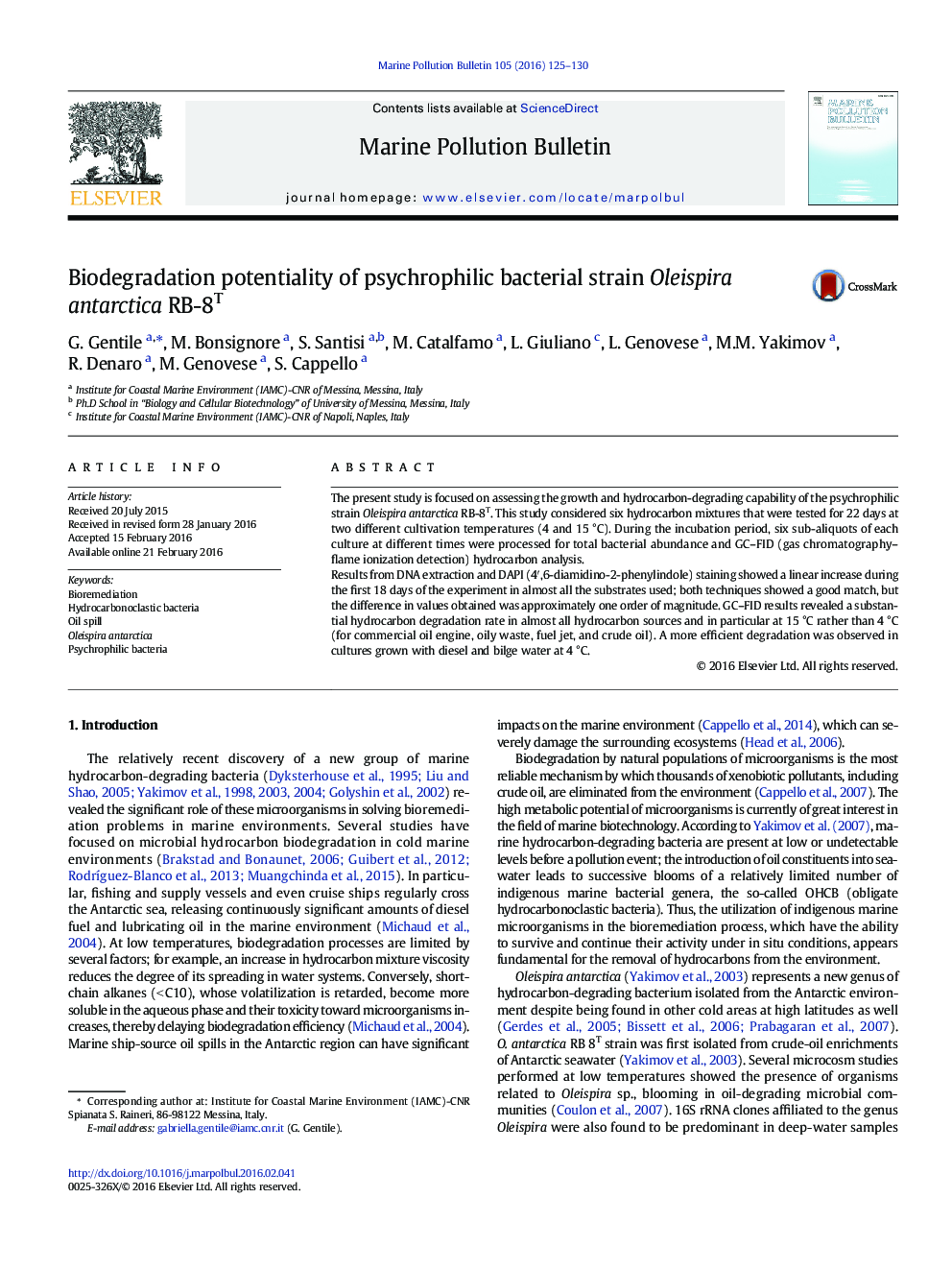| Article ID | Journal | Published Year | Pages | File Type |
|---|---|---|---|---|
| 4476524 | Marine Pollution Bulletin | 2016 | 6 Pages |
•This study investigated biodegradation in cold marine environments.•Treatment of naval transportation wastes is essential.•Oleispira sp. is a potential candidate that plays a key role in the cleanup treatments of such wastes.
The present study is focused on assessing the growth and hydrocarbon-degrading capability of the psychrophilic strain Oleispira antarctica RB-8T. This study considered six hydrocarbon mixtures that were tested for 22 days at two different cultivation temperatures (4 and 15 °C). During the incubation period, six sub-aliquots of each culture at different times were processed for total bacterial abundance and GC–FID (gas chromatography–flame ionization detection) hydrocarbon analysis.Results from DNA extraction and DAPI (4′,6-diamidino-2-phenylindole) staining showed a linear increase during the first 18 days of the experiment in almost all the substrates used; both techniques showed a good match, but the difference in values obtained was approximately one order of magnitude. GC–FID results revealed a substantial hydrocarbon degradation rate in almost all hydrocarbon sources and in particular at 15 °C rather than 4 °C (for commercial oil engine, oily waste, fuel jet, and crude oil). A more efficient degradation was observed in cultures grown with diesel and bilge water at 4 °C.
